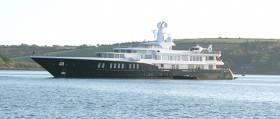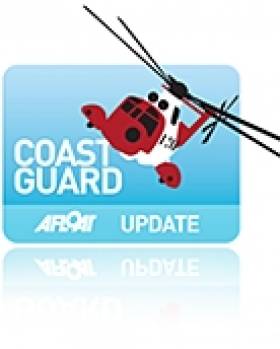Displaying items by tag: Air
Superyacht 'Air' Returns to Cork Harbour
Now regular visitor Superyacht ‘Air’ returned to Cork this morning. The yacht is moored off Cork Harbour anchored off the spit lighthouse in Cobh. This black hulled Dutch-built Feadship was launched in March in 2011 and called to the Irish South coast in 2012 and in 2015. The yacht is available for charter at the reported rate of €750,000 per week. Onboard luxury inlcudes a helicopter pad and 102-inch pop-up movie screen.
If the superyacht follows her usual Irish itinerary then she will move on to Kinsale where she anchors in the mouth of the harbour and tenders in and out. Last year they anchored in the lee of the old head and the onboard helicopter flew from the boat up to the golf course. See our 2015 photos of the superyacht.
Coast Guard in Fourth Medical Evacuation This Week
The incident was co-ordinated by the Marine Rescue Co-ordination Centre of the Irish Coast Guard at Valentia which tasked the Shannon-based helicopter this morning to travel with an A&E Registrar from Cork University Hospital to treat the injured crew member en-route. Crews on these helicopter are also trained to paramedic standard. The helicopter arrived on scene at 14:37pm this afternoon and crew and medical personnel administered treatment to the casualty. The helicopter travelled onward to Tralee Regional Hospital where it arrived at approximately 16:30pm this afternoon. The Air Corps Casa aircraft provided top-cover for the helicopter during this incident.






























































